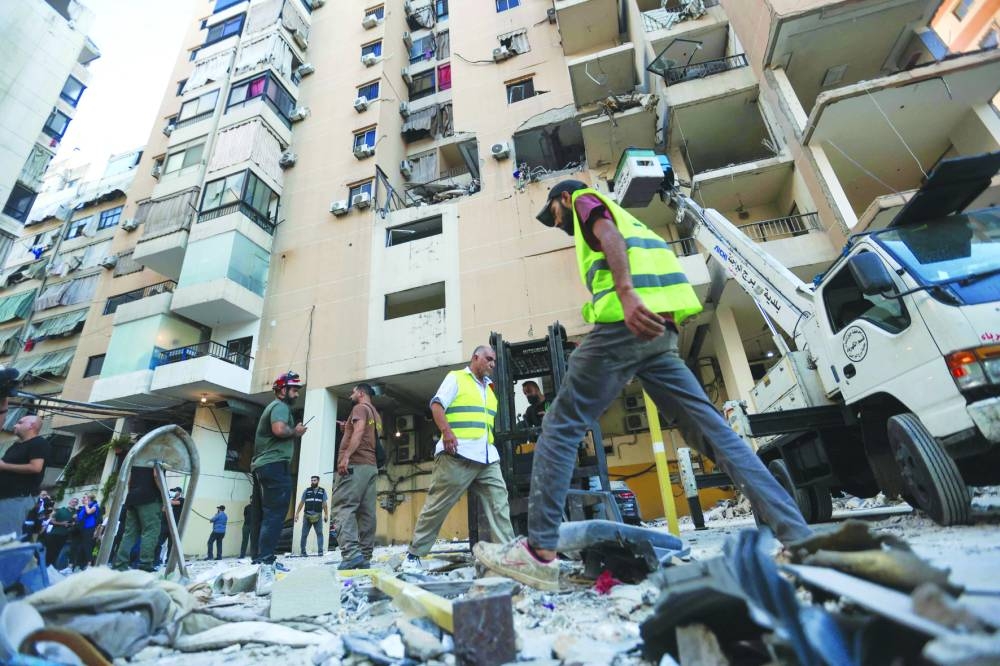Israel rejected global calls on Thursday for a ceasefire with the Hezbollah movement, defying its biggest ally the US and pressing ahead with strikes that have killed hundreds in Lebanon and heightened fears of an all-out regional war.
An Israeli warplane struck the edges of the capital Beirut, killing two people and wounding 15, including a woman in critical condition, Lebanon's health ministry said. That took deaths from hits overnight and during Thursday to 28.
The strike killed the head of one of Hezbollah's air force units, Mohammad Surur, two security sources said, the latest senior Hezbollah commander to be targeted in days of assassinations hitting the group's top ranks.
On the Israeli side of the border with Lebanon, the army staged an exercise simulating a ground invasion - a potential next stage after relentless airstrikes and explosions of communications devices.
Israel's air force is planning to assist troops in the event of a ground operation and will stop any arms transfers from Iran, Air Force Commander Major General Tomer Bar said.
Israel has vowed to secure its north and return thousands of citizens to communities there who have evacuated since Hezbollah launched a campaign of cross-border strikes last year in solidarity with Palestinian resistance movement Hamas.
Landing in the U.S. to address the UN General Assembly, Israeli, Prime Minister Benjamin Netanyahu told reporters the military will keep hitting Hezbollah with "full force and we will not stop until we achieve all our goals, first and foremost returning the residents of the north safely to their homes."
Hundreds of thousands of people have fled their homes during the heaviest Israeli bombardment of Lebanon since a major war in 2006.
The U.S., France and several other allies urged an immediate 21-day ceasefire across the Israel-Lebanon border. They also expressed support for a ceasefire in Gaza.
The White House said that discussions are continuing for a 21-day ceasefire. U.S. Secretary of State Antony Blinken was scheduled to meet with Israeli Minister for Strategic Affairs Ron Dermer.
In London, U.S. Defense Secretary Lloyd Austin warned there was a risk of all-out war in the Middle East, but a diplomatic solution was still possible.
Israeli fighter jets also hit infrastructure on the Lebanese-Syrian border to stop the transfer of weapons from Syria to Hezbollah in Lebanon, Israel's military said.
The Lebanese health ministry said most victims on Thursday were Syrians killed in the town of Younine in the Bekaa Valley. Lebanon is home to around 1.5mn Syrians who fled civil war there.
Hezbollah said in a statement it had struck the town of Kiryat Shmona in north Israel and an Israeli military northern command base, as well as using air defence weapons to force two Israeli warplanes back.
In Beirut, thousands of Lebanese have sought shelter in schools.

People and rescuers gather at the site of an Israeli airstrike that targeted an apartment on Al-Qaem street in Beirut’s southern suburbs on Thursday

Volunteers work in a community kitchen to prepare meals for those who fled Israeli bombardment in southern Lebanon and found refuge in temporary shelters in Beirut, on Thursday
